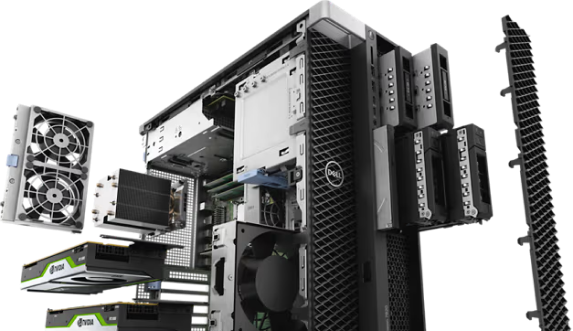According to research, the global industrial PC market is expected to grow to £4.27 billion in 2022 at a compound annual growth rate of 7.3%. This is due to the increased use of IoT in automated and manufacturing processes, both of which require durable and resilient computers.
An industrial computer has a more robust exterior than a commercial computer. It is fit for harsh working environments such as factories or other manufacturing facilities, as well as power plants and laboratories.
Let’s look at the IPC design and features that enhance their performance and functionality in industrial settings.
What is Industrial Computing Characterised By?
These computers can perform complex tasks with reliability and precision within industrial settings and for a more extended period.
In production, IPCs are built exclusively with components that withstand severe working conditions. IPCs feature software for shop floor control systems, high CPU power and huge memory capacity. An industrial mini PC variant is designed for small spaces and embedded IoT applications.
What Distinguishes an IPC from a Commercial PC?
IPCs have distinct features that differentiate them from commercial desktop or laptop computers. They’re unique machines that combine rugged construction with complicated software functions.
Industrial Grade Components
Commercial PCs are usually made of plastic and metal and are susceptible to heat, shock or water ingress damage. IPCs are constructed with higher-quality components that take longer to degrade and provide damage resistance and safety.
High Endurance
IPCs are designed to endure high ambient temperatures and humidity that would prove fatal for a regular PC. They are equipped with strong filters that keep away dust and other particles on shop floors.
Disc drives are encased in shock absorbers that insulate and protect them from vibration. Also, the power supply is resistant to spikes in electricity due to proper grounding. IPCs are insulated against water and other liquids to protect them from corrosion.
Flexible I/O Design
IPCs that control complex operations need to get input from multiple sources and provide an output of information. The latter enables real-time monitoring and facilitates the decision-making process.
Compared to regular PCs, IPCs are equipped with various I/O ports to ensure compatibility with different devices.
Long Lifecycle
IPCs have a longer life cycle to minimise the redesigning system expenses due to compatibility issues. IPCs are produced to last longer and ensure a sustainable service in all industrial settings, which further saves companies the cost of certification of the industrial process.
Fanless Cooling
Standard PCs are cooled by a fan, whereas IPCs are designed to cool on the principle of heat conduction. The computer is placed upon a heat sink made from copper or aluminium, which have high thermal conductivity properties. The heat generated by the industrial PC is absorbed and released into the air via the heat sink. Additionally, thermal paste is used inside the computer to relieve heat pockets.
Find the Best Industrial Computer for You
If you’re looking for an industrial PC, you’ve come to the right place. Inside Tech offers a selection of industrial computers to meet your unique business needs.
Configure your computer according to your preferences with our budget-friendly solutions. Contact us today to discuss your requirements.

